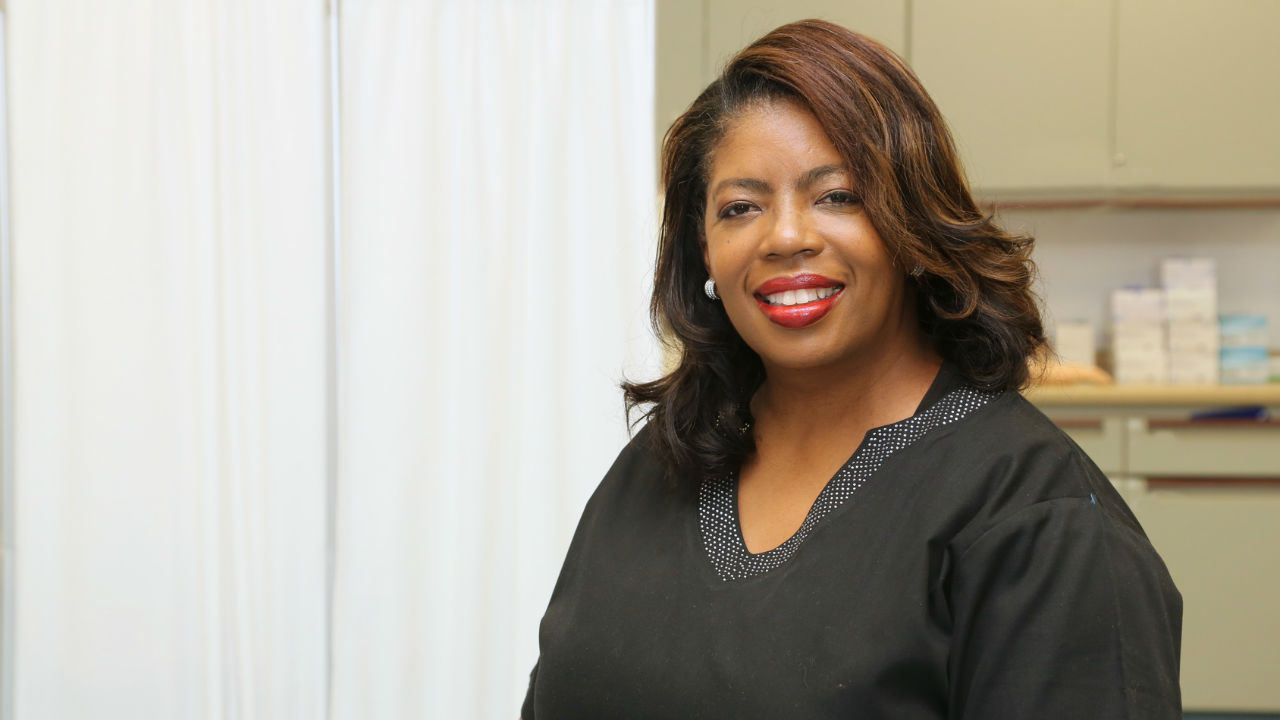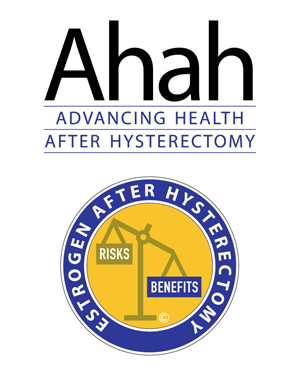 Ivan Kruk/fotolia
Ivan Kruk/fotolia
I’d like to tell you about a new non-profit women’s health education foundation, dedicated to helping women who have had a hysterectomy. I support the foundation’s mission with all my heart, and with the strength of EmpowHER.
It’s called Ahah — The Advancing Health After Hysterectomy Foundation — and its purpose is to alert women and health care providers about the value of using estrogen therapy (ET).
Dr. Philip Sarrel, Professor Emeritus of Obstetrics, Gynecology, and Reproductive Sciences, and Professor Emeritus of Psychiatry, at Yale University School of Medicine in New Haven is Ahah's founder.
In the United States today, there are 15 million women under age 60 who have had a hysterectomy. 1 Until 2002, more than 90 percent of women took ET after they had a total hysterectomy (uterus and ovaries removed).
But then a large study, the Women’s Health Initiative (WHI) came along. It reported results that scared millions of women and health care practitioners so that now only about 10 percent use any form of postmenopausal hormones.
Here’s the problem. The WHI first reported on results in women who had a uterus, who received Prempro — a drug that combines estrogen and another hormone called MPA.
MPA is a progestogen that opposes the actions of estrogen. Prempro did appear to increase risk for having a heart attack, a stroke, a blood clot in veins and breast cancer.2
No wonder everyone became alarmed. Millions of women stopped taking hormones — including women who had no uterus.
But the women who had no uterus and could safely use estrogen-only (ET) were subsequently found by the WHI and other researchers, in 2004 and up to the present, to have health benefits without the harmful effects seen with Prempro.
Women under the age of 60, who started ET within 10 years of removal of their ovaries, and showed signs of estrogen deficiency, were found to have decreased risks for numerous health conditions.
The conditions included heart attacks, breast and colon cancer, osteoporosis and hip fracture, dementia, and sex problems related to estrogen deficiency.3 There was no increase in stroke risk for these women, and the problem of blood clots in veins appears to be avoided when the ET is in a form absorbed through the skin.
When the media reported the health benefits of ET, prescriptions for ET continued to decline.
Why?
Psychologists who study how people make decisions tell us that once people have a negative view of something, it is very difficult to change that view. It persists even in the face of overwhelming evidence.4
Ahah is hoping to open minds to reconsider ET.
Ahah takes no financial support from nor is it affiliated with any drug companies. Ahah simply hopes to save lives and improve women’s quality of life through education.
Dr. Sarrel and colleagues published a paper in the American Journal of Public Health in 2013. It estimated that between 2002 and 2011, almost 50,000 women who had hysterectomies, but chose not to use ET, died before age 70 because of not using ET.5
I could have been one of those women. Here is my story.
I know from firsthand experience how important it can be for women to receive estrogen therapy. I had an unnecessary hysterectomy at 42 and I’m eager to share what happened to me.
It took me one year, nine doctors and 32 books to find the right hormone specialist to get the correct hormone replacement therapy for me.
Most women like myself do not know that estrogen in your body drops sharply within the first 24 hours after having your ovaries and your uterus removed.
In my case, I tanked. I could no longer function, I had problems with brain function, night sweats, fluttering of the heart, hot flashes, depression and so much more.
Life became unmanageable. At one point my quality of life became so poor, I didn’t want to live anymore.
That’s why I started EmpowHER — to bring awareness to women about their bodies and talk about gender-specific medicine for women. I wanted to educate women.
I got sick, I got mad — and you never want to get a woman mad, because she’ll run off and start a company. We will always find a solution to help other women.
When I found out that Dr. Sarrel was starting a foundation to educate health care professionals and women about the importance of estrogen, I jumped at the opportunity to help.
When Phil said he was going to create Ahah, I said, “Whatever you do, I’m in because we need to educate health care professionals and we also need to educate women.”
How does Ahah help women?
Ahah helps women by educating them and their health care professionals about how women can live healthy lives after a hysterectomy. By informing health care professionals about the benefits of estrogen, women are able to get the proper treatment they need, and not face the extreme challenges I faced.
It's not just beneficial — we need it for optimal health. We now know that ET after hysterectomy reduces the risk for sex problems, dementia,6 heart disease, osteoporosis, and the list goes on and on.
We know estrogen affects more than 400 cell actions in a woman's body.7
I know personally, I can't function without my estrogen. Without estrogen, the same thing that happened to me will happen to others. Women will tank, and their quality of life will be impaired.
I don't know how women do it, quite frankly. Well, I do know — they don't.
I see it all the time. Women are suffering unnecessarily, and that is why I am such a believer in Ahah's mission. With younger and younger women having hysterectomies,8 the need for AHAH is evergrowing so the long-term effects of no estrogen can be avoided.
How can women become involved in Ahah?
There are a couple of ways women can become involved with Ahah.
One way is sharing — sharing information about Ahah with other women, like I do every day on EmpowHER. Spreading the word is so important.
Also, women can give financially to Ahah so we can educate more and more health care professionals and patients. I’d love to see every woman give just one dollar and band together to work on these types of issues we face.
No woman should ever have to suffer like I did, not on my watch. I live this every single day and you should, too.
We, as women, need to take ownership of our own health and wellness. That's the only way we are going to change women's health.
It's your body and your health. Now let's go spread the word about Ahah so we can all live happier, healthier lives.
Learn more about Ahah here: www.EmpowHER.com/AHAH
Reviewed April 6, 2016
By Michele Blacksberg RN
Edited by Jody Smith
1) Hysterectomy surveillance in the United States, 1997 through 2005. Med Sci Monitor 2008;14(1)CR24-CR31.
http://www.ncbi.nlm.nih.gov/pubmed/18160941
2) Rossouw JE, Anderson GL, Prentice RL, et al. Risks and benefits of estrogen plus progestin in healthy postmenopausal women: principle results from the Women’s Health Initiative Randomized Controlled Trial. JAMA 2002; 288(3):321-333.
http://jama.jamanetwork.com/article.aspx?articleid=195120
3) LaCroix AZ, Chlebowski RT, Manson JE, et al. Health outcomes after stopping conjugated equine estrogens among postmenopausal women, with prior hysterectomy: a randomized controlled trial. JAMA 2011;305(13):1305-1314.
http://jama.jamanetwork.com/article.aspx?articleid=896193
4) Ross HJ. Everyday Bias: Identifying and navigating unconscious judgements in our daily lives. Rowman and Littlefield. 2014. New York.
http://www.amazon.com/Everyday-Bias-Identifying-Navigating-Unconscious/dp/1442230835
5) Sarrel PM, Njike V, Vinante V, Katz DL. The Mortality Toll of Estrogen Avoidance. AJPH 2013;103:1583-1588.
http://www.neogs.org/Syllabus/Spring%202015/Sarrel%20NEOGS%20Final%20[Read-Only].pdf
6) Rocca WA, Bower JH, Maraganore DM, et al. Increased risk of cognitive impairment or dementia in women who underwent oophorectomy before menopause. Neurology 2007; 69:1074-1083.
http://www.neurology.org/content/69/11/1074
7) A Comprehensive Look at Hormones and the Effects of Hormone Replacement, Pamela Smith, M.D., MPH.
http://www.a4m.com/assets/pdf/bookstore/aamt_vol7_41_smith.pdf
8) Key Statistics from the National Survey of Family Growth.
http://www.cdc.gov/nchs/nsfg/key_statistics/h.htm#hysterectomy






Add a CommentComments
There are no comments yet. Be the first one and get the conversation started!